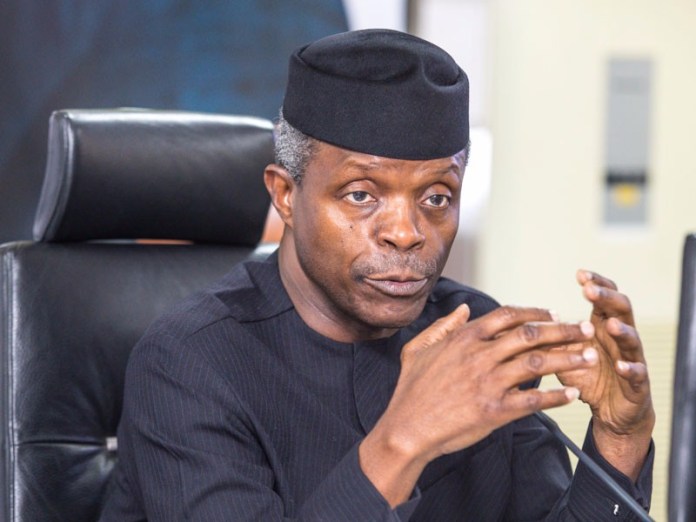The Vice President of Nigeria, Prof. Yemi Osinbajo has charged members of the reconstituted National Council on Privatisation (NCP) to embrace public-private partnership for the growth of the nation’s economy.
Inaugurating the council at the Presidential Villa in Abuja, Osinbajo, who is its chairman noted that the council is saddled with the responsibility of resolving the thorny economic issues faced by the country.
Investors King reports that the NCP was established to formulate strategic plans and approve policies on privatisation, commercialisation and reforms of the various sectors of the economy, in order to correctly pilot the nation’s economy for the political, economic and social wellbeing of the citizens.
The statutory members of the reconstituted Privatisation council include: the minister of finance, budget and national planning, Zainab Ahmed as Vice Chairman; minister of trade, industry and investment, Otunba Adeniyi Adebayo; minister of justice and attorney-general of the federation, Abubakar Malami; secretary to the government of the federation, Boss Mustapha; Governor of the Central Bank of Nigeria, Godwin Emefiele.
Other members are: Adeyemi Dipeolu, special adviser to the president on economic matters and Muhammad Ahmad, Nasidi Ali, Remi Morgan and Marius Adimmadu, representing the private sector and Alex Okoh, director general, BPE, serving as member/secretary.
Addressing the committee members, Osinbajo said, “By his approval to constitute the council, Mr. President has entrusted us with the strategic national assignment of piloting the nation’s sector reform initiatives, and the privatisation and commercialisation programme on behalf of this Administration.
“Your appointment as a member of the Council is a unique opportunity to utilize your well-acknowledged skills and experience to contribute to the socio-economic development of our country.
“Some of the cardinal objectives of the economic agenda of this administration are to ensure accelerated growth of the economy; provide infrastructure; create jobs, and provide a suitable environment for productive activities to flourish and tap our enormous natural wealth for the benefit of our people.”
The Chairman of the council called for the approval of the legal and regulatory framework for public enterprises as well as reviewing the socio-economic effects of privatisation and commercialisation to devise corresponding solutions.
He urged members of the council to engage in thorough monitoring of privatised enterprises, encouraging public-private partnerships.

 Forex2 weeks ago
Forex2 weeks ago


 Naira2 weeks ago
Naira2 weeks ago
 Naira4 weeks ago
Naira4 weeks ago
 Company News4 weeks ago
Company News4 weeks ago
 Billionaire Watch1 week ago
Billionaire Watch1 week ago




 Naira2 weeks ago
Naira2 weeks ago




 Naira4 weeks ago
Naira4 weeks ago




 Naira1 week ago
Naira1 week ago






















